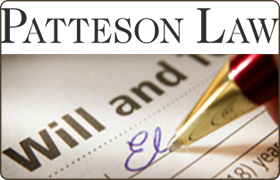Gladewater Estate Lawyer, Texas
Sponsored Law Firm
-
 x
x

Click For More Info:
-
Patteson Law
218 N Broadway Ave, #304, Tyler, TX 75702» view mapEstate Wisdom. Experience. Integrity.
As a strong, aggressive advocate for his clients, and a well-respected member of the legal community, you can rest assured that your case is in good hands.
800-769-7481
Casey Goolsby
✓ VERIFIEDAccident & Injury, Business, Consumer Rights, Estate, Lawsuit & Dispute
Partner Casey Goolsby focuses his practice on civil litigation, personal injury and wrongful death, business, consumer, collections and appellate law,... (more)
Mark L. Boon
Real Estate, International, Industry Specialties, Estate Planning
Status: In Good Standing Licensed: 48 Years
Raymond E. Rogers
Estate Planning, Bankruptcy, Family Law, Criminal, Business
Status: In Good Standing Licensed: 26 Years
Robert Glass Schleier
Commercial Real Estate, Oil & Gas, Wills, Administrative Law
Status: In Good Standing Licensed: 48 Years
Roy Nicholas Hearne
Commercial Real Estate, Real Estate, Wills, Estate
Status: In Good Standing Licensed: 51 Years
John Arthur Whitehead
Oil & Gas, Family Law, Business & Trade, Wills
Status: In Good Standing Licensed: 44 Years
 Richard Patteson Tyler, TX
Richard Patteson Tyler, TX AboutPatteson Law
AboutPatteson Law Practice AreasSpecializations
Practice AreasSpecializations

